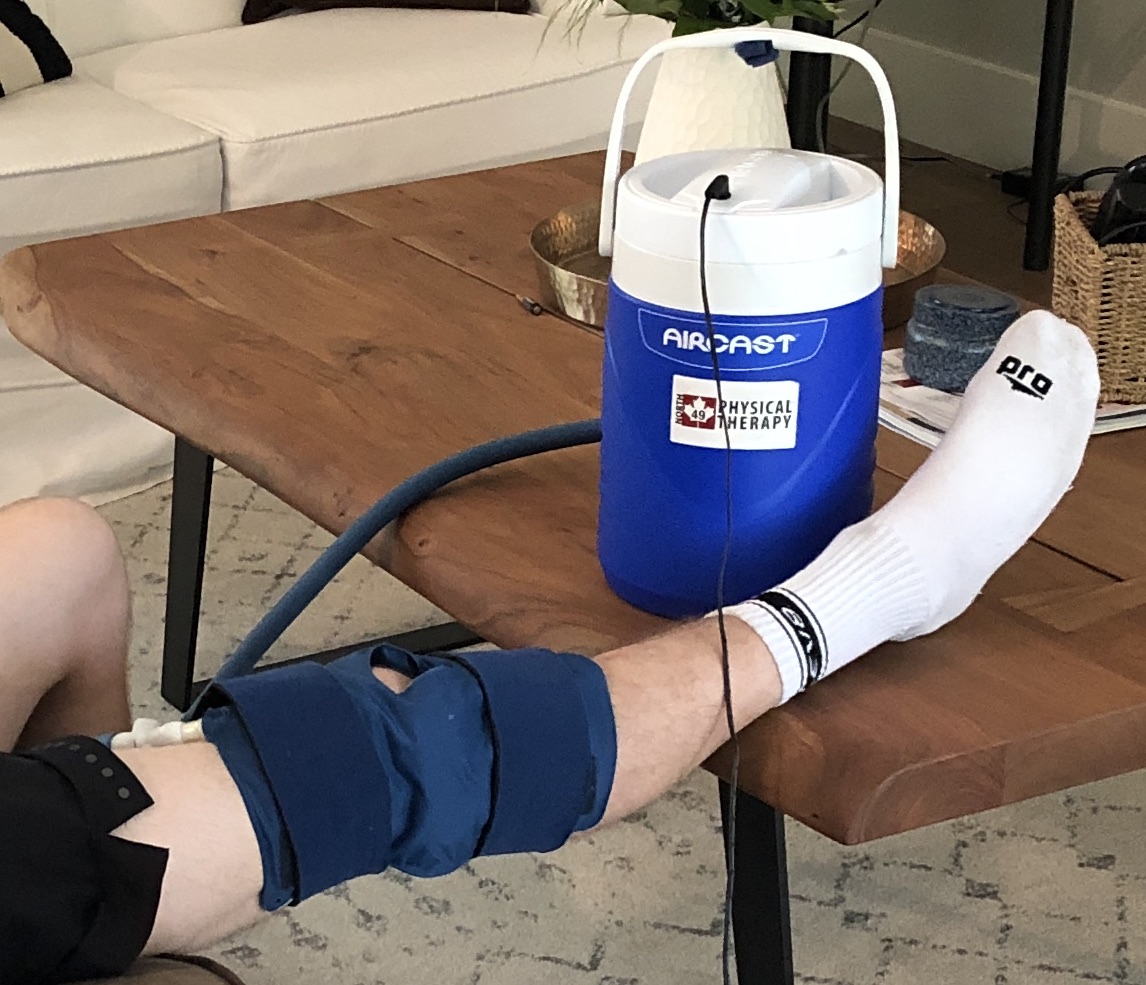Pre and Post-Operative Physiotherapy
If you have found yourself at this page, it has likely been suggested to you somewhere along the line that surgery may be in your near or distant future. Unfortunately, not all injuries and medical conditions respond with time and therapy. Sometimes they require surgery to repair, release, replace, or fixate certain anatomical structures.
Pre and post surgical rehabilitation is often recommended and beneficial for just about any type of surgery; hip replacement, knee arthroscopy, rotator cuff repair, etc.
Benefits of Pre-Operative Physiotherapy
Faster Recovery
- Performing exercises prior to surgery trains your muscles in advance, in turn making post-surgical rehab easier and more effective.
- Prehab can also improve strength, endurance and flexibility prior to surgery.
Fewer Complications
- Exercises can lead to less complications such as infection as exercise enhances immunity support.
Baseline Measures
- Attending therapy will also allow time to achieve baseline measures (range and strength measures) before surgery that can be used to monitor your progress post-operatively.
Less Anxiety
- Prehab allows for time to educate you about the expectations for surgery, rehab and your prognosis.
- This knowledge leads to less anxiety and stress.
Additional Information
If you have any questions about if prehab is right for your needs or have not seen a physiotherapist prior to an upcoming surgery, we recommend you booking an appointment click HERE.
Benefits of Post-Operative Physiotherapy
Improved Circulation
- Seeing a physiotherapist for exercises and/or manual therapy increases circulation to the affected area which promotes healing.
Decreased Pain and Swelling
- Icing (portable ice machines*) and ultrasound are both techniques a physiotherapist may use to reduce swelling and pain, limiting your use of medications.
Increased Range of Motion and Strength
- A physiotherapist will continue to monitor your progress to determine if any symptoms are indicative of hurt or harm and ensure that exercises are performed correctly and progressing towards individual needs and goals.
- Doing the exercises correctly will improve your flexibility, strength, coordination, activity tolerance, and overall confidence.
Additional Information
- Post surgical rehabilitation assists an individual in setting goals and transitioning back to their regular daily activities including sports, school, and work.
What Happens in my Initial Assessment?
Your physical therapist will carefully analyze any imbalances or deficiencies in your muscles, joints, nerves, and overall movement. From there a customized exercise program to improve your injury condition by addressing your flexibility, strength, stability, balance, coordination, and any sport-specific skills.
Manual therapy such as manual stretching, joint mobilization and/or soft tissue release techniques may also be used in conjunction with the self management strategies to maximize the best outcome. Plans are individualized based on many factors like how long ago the injury occurred and whether you are in pre- or post-operative care.
The assessment is one hour and subsequent follow-up sessions are approximately half an hour.
*Please note: If you have been attending physical therapy before your surgery, you will need to book another initial assessment after your surgery to allow sufficient time for your physiotherapist to properly assess and create a treatment plan for your new and improved knee/hip/shoulder…etc.

Things to Keep in Mind:
- Transportation may be required to and from surgery.
- It is important to know post-operative instructions from the surgeon and have access to their specific guidelines they wish to follow.
- Surgery may impact the use of your dominant hand, using stairs or performing home chores or work duties. Be prepared financially, pre-make meals, and/or structure your home accordingly to set yourself up for success.
- Use of a cyrocuff* (portable ice machine) post-op can be helpful to decrease swelling.
* available at our clinic (pictured left)
Frequently Asked Questions
What Should I Expect After Surgery?
After surgery, your surgeon may provide you with education on what activities to temporarily avoid, along with principles of ice, elevation, and compression. It is common for the surgeon to also provide a handout of exercises to perform in the days following. It is crucial that you perform them as prescribed. One barrier to recovery is performing these exercises infrequently (potentially due to pain) or performing them incorrectly. It is also important to note that these exercise handouts are only the first phase and do not typically include progressions for maximal recovery.
Why Do I Need to Exercise After Surgery?
This is a great question! Research has shown that progressively adding load, as with exercise, in a structured manner to the area of surgery maximizes the recovery. With time the tissues around the surgery will heal, but if they are not gradually stressed they will heal in a stiffened manner and become deconditioned. This then leads to recurrent pain with activity.
If you have any question with respect to pre/post operative therapy or would like to book an appointment with one of our physiotherapists, feel free to gives us a call at 306-343-7776 or book the appointment online.
CONTACT & HOURS
Phone: 306-343-7776
Fax: 306-343-7780
Monday to Friday: 9am-6pm
Locally Owned & Operated
